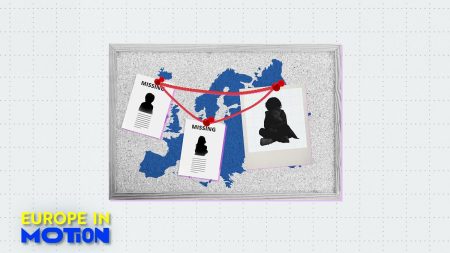Summarize this content to 2000 words in 6 paragraphs in Arabic
Ahead of the EU and UK elections, commentators and social media users are making factually incorrect claims about immigration in Europe.
ADVERTISEMENTMigration is typically a hot topic in any election campaign and is often fuel for inflammatory debates and false claims.Whether they’re about benefits or immigration rates, the allegations are usually provocative and simply wrong.Take this example from Spain:This post on Facebook says that almost 97% of people on Spain’s minimum basic income are immigrants.The minimum basic income is a social security benefit that provides a basic wage to the economically vulnerable. It can range from about €600 to €1,400 a month, depending on the beneficiary’s living conditions. But the Facebook post is wrong for a couple of reasons.Firstly, it says that it’s the Ministry of Labour that pays out the minimum basic income when it’s actually the Ministry of Inclusion, Social Security and Migration.But more importantly, it’s wrong because according to the inclusion ministry’s official data for April, 82.4% of beneficiaries held Spanish nationality, while only 17.6% were foreigners.The post also incorrectly estimates the number of people receiving the minimum basic income: in reality, the benefit was paid to some 600,000 homes, in which almost 1.8 million people live.Do migrants outnumber native population in European capitals?Elsewhere on the continent, a clip by Dutch far-right activist Eva Vlaardingerbroek alleges that most of the populations of Amsterdam, Brussels and London are immigrants.She also says that the completely baseless “great replacement theory” is a reality rather than a far-right conjecture meant to imply that Europe’s white population is being supplanted by immigrants from elsewhere.All of this is incorrect.Official numbers from the Dutch statistics office reveal that only 37% of Amsterdam’s population was born outside the Netherlands.Figures from Belgium’s statistics agency put the number of Brussels residents born outside the country at 48%. And in London, a 2021 census revealed that 41% of the capital’s population wasn’t born in the UK, according to the Office for National Statistics.Furthermore, simply being born elsewhere is no indicator of background, and it can’t be used to demonstrate an otherwise unprovable hypothesis.While it’s true that immigration is an important issue and it’s valid to have concerns about how it’s handled, it’s crucial to make sure any claims about it are based in fact.ADVERTISEMENTImmigration remains key talking point in EU electionsWith the European elections just days away, immigration policy is sure to be one of the main themes voters will have in mind as they head to the polls, particularly as forecasts predict a sway to the right.Euronews’ exclusive poll revealed that half of Europeans disapproved of the EU’s stance on migration, demanding stronger border controls. Various national governments and European Parliament hopefuls have also taken steps during the campaign to clamp down on immigration, perhaps in a last ditch attempt to hoover up votes.Portugal has put an end to a regime allowing foreigners to enter the country and only then apply for a residence permit, while several Irish parties have voiced their opposition to the government’s “liberal” migration policy.This follows after the EU signed off on its New Pact on Migration and Asylum, reforming the bloc’s migration rules to ensure all member states, regardless of location, take their fair share.ADVERTISEMENT
رائح الآن
rewrite this title in Arabic No, 97% of people on Spain’s minimum basic income are not migrants
مقالات ذات صلة
مال واعمال
مواضيع رائجة
النشرة البريدية
اشترك للحصول على اخر الأخبار لحظة بلحظة الى بريدك الإلكتروني.
© 2026 جلوب تايم لاين. جميع الحقوق محفوظة.















